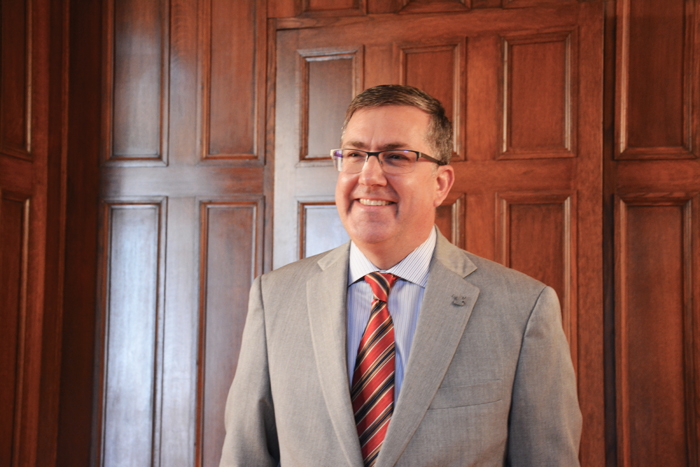Cody Cottier is a senior communication and philosophy double major from Chimacum.
WSU President Kirk Schulz.
With budget in mind, Schulz announces plan to limit new positions
August 1, 2017
WSU President Kirk Schulz today announced the next steps for bringing the university’s budget under control, including scaling back on creating new employee positions and filling vacant ones.
In a memo, Schulz said university leadership will introduce a process to “carefully examine” these positions before recruiting employees, and that the most critical positions will require executive approval.
According to the memo, shared-governance groups will discuss the process, with the goal of having it in place by the beginning of the academic year. WSU has added about 745 positions in the past five years, Schulz said, leading to payroll increases of $96 million annually.
The state is providing $13 million for faculty and staff salary increases this biennium, Schulz said, but this still does not cover the commitment WSU made to pay increases several years ago.
He said he has authorized a 1 percent salary increase for faculty, administrative professional staff and graduate students, effective Jan. 1. There will be a second 1 percent increase on January 1, 2019. Schulz said chancellors, vice presidents and deans requested that the amount of money they would have received in raises instead be invested in other “university priorities.”
Schulz’s memo comes a year after a letter to the university community last May, in which he explained that WSU had been using its reserve funds unsustainably for several years to cover expenses the university did not have funding for.
In total, these expenses drained the university’s reserves of $115 million, or about 56 percent, since 2013, according to the memo.
These included new buildings, such as the Digital Classroom Building, the Elson S. Floyd Cultural Center, the Museum of Art expansion and the new police station. According to the memo, construction of these buildings resulted in a $5 million annual debt, paid through the central budget. Costs associated with the finished buildings will add another $2 million annually.
Schulz said the state did not provide startup funds for the Elson S. Floyd College of Medicine. Funding for the college will come from the central budget for the first few years.
WSU Athletics overspent its budget for several years to finance personnel and buildings, resulting in multiple annual deficits of about $13 million. Schulz said in the memo that they are making “commendable progress” toward reducing that annual deficit.
In a November memo, Schulz said several academic units had overspent their budgets in the 2015-2016 school year, totaling a $17 million deficit. He directed those units to create plans for balancing their budgets, and in his memo today said each unit should plan to spend within their allocated budget this year.
Schulz said they do not expect to fix all deficits in a year, but that “significant improvement” in the next few years is necessary.
He noted in the memo that WSU will receive additional state funding in the 2017-2019 biennium, including $9.4 million from undergraduate resident tuition increases of 2.2 percent this year and 2 percent the next, and $10 million for base funding for the College of Medicine.
The university will increase the Holland/Terrell Libraries’s budget by $500,000 to avoid further cuts to journal subscriptions, Schulz said, adding that this ensures critical resources across all disciplines.



